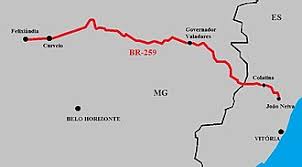Understanding Brazil: A Multifaceted Overview

Introduction
Brazil, the largest country in South America, is known for its rich cultural heritage, diverse ecosystems, and significant role in the global economy. As a nation with a population exceeding 213 million, Brazil is a melting pot of cultures, traditions, and innovations. The importance of Brazil not only lies in its economic potential but also in its ecological significance as home to the Amazon rainforest, often referred to as the “lungs of the Earth.” This article will delve into the current events influencing Brazil’s cultural, economic, and environmental landscape.
Cultural Richness
The cultural landscape of Brazil is vibrant and varied, influenced by Indigenous peoples, Portuguese colonisers, African heritage, and waves of immigrants. Events such as the Rio Carnival attract millions of visitors each year, showcasing spectacular parades, samba music, and elaborate costumes. Additionally, the influence of Brazilian cuisine, with dishes like feijoada and acarajé, highlights the country’s diverse culinary traditions. Recently, Brazil hosted the International Festival of Arts in São Paulo, promoting local artists and enhancing cultural exchange.
Economic Landscape
Bearing the title of the largest economy in Latin America, Brazil plays a crucial role in global markets, particularly in agriculture and commodities. With vast natural resources, Brazil is a top exporter of soybeans, coffee, and iron ore. However, the economy faces challenges such as inflation and economic inequality, which are exacerbated by the ongoing impacts of the COVID-19 pandemic. In recent months, the government has sought foreign investment to develop sustainable agriculture practices, hoping to mitigate these economic disparities.
Environmental Concerns
Brazil’s vast rainforests are vital for biodiversity and climate regulation, yet they face significant threats from deforestation and illegal land use. In 2023, satellite imagery revealed alarming rates of deforestation in the Amazon, prompting international condemnation and calls for action. Brazilian authorities have recently stepped up efforts to combat illegal logging and promote reforestation initiatives, spurred by pressure from global environmental organisations and an increasing awareness of climate change issues. These efforts underline the need for a balanced approach to economic growth and environmental protection.
Conclusion
In conclusion, Brazil’s multifaceted identity is underscored by its cultural vibrancy, economic challenges, and pressing environmental issues. The nation’s ability to harness its diverse resources while also protecting its natural heritage will define its future. As global interest in sustainable practices increases, Brazil has the opportunity to lead by example, promoting responsible development and cultural exchange on the international stage. Readers are encouraged to stay informed about developments in Brazil, as its path could influence global trends in culture, economy, and environmental stewardship.








